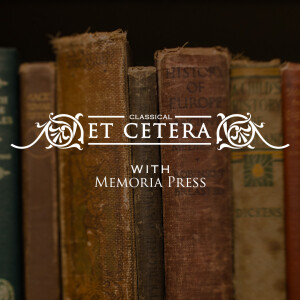Wednesday Jun 11, 2025
What Classical Education REALLY Means — Traditional, Progressive, Neoclassical & More

What do people _really_ mean when they say "classical," "traditional," or "progressive" education? In this episode of Classical Et Cetera, we break down the most common terms in the world of classical education. From classical and neoclassical to traditional, vocational, and progressive models, we explore where these ideas come from, how they’re used today, and why definitions matter.
Whether you’re new to classical education or trying to explain it to others, this episode will help you clarify your terms, understand key differences, and see why classical education is more than just a label.
Get _A Defence of Classical Education_ from our website: https://www.memoriapress.com/curriculum/mp/a-defence-of-classical-education/?utm_source=PodBean&utm_medium=CETC&utm_campaign=173
Read an article from Martin about the definition of Classical Education: https://www.memoriapress.com/articles/what-classical-education-1/?utm_source=PodBean&utm_medium=CETC&utm_campaign=173
"Definitions"
*What We're Reading* from This Episode:
_Independent People_—Halldor Laxness— (Paul)
_You Are What You Love_—James K.A. Smith (Tanya)
_Mystery Novel_—Georgette Heyer (Tanya)
_Passing the Torch_—Louis Marcus (Martin)
_The Medieval Mind of C.S. Lewis_—Jason M. Baxter (Martin)
No comments yet. Be the first to say something!